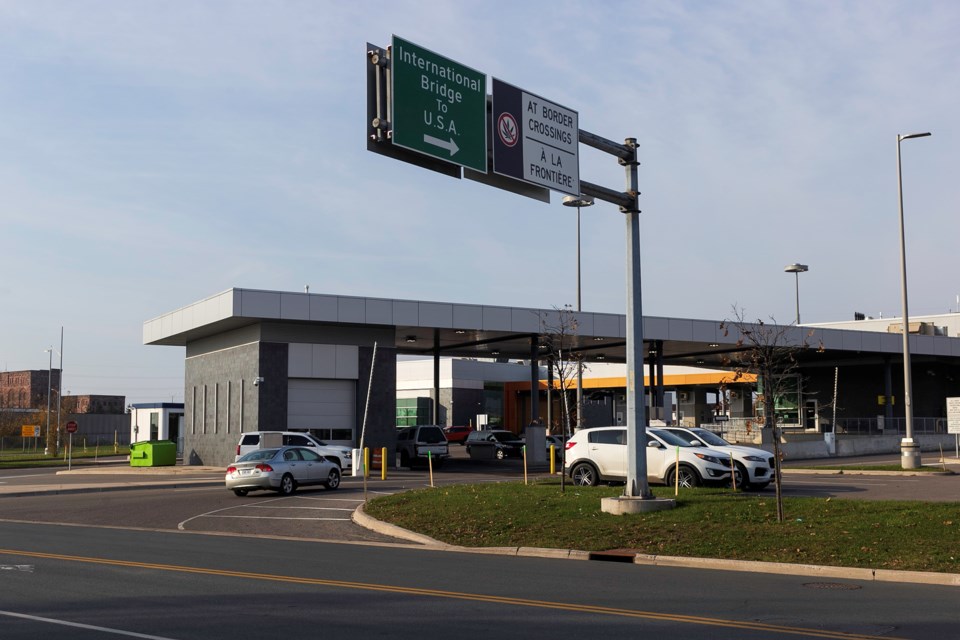Now that the border has reopened, Canadians hoping to cross the border into Michigan are being met with one of the most severe COVID-19 hot spots in the United States.
Meanwhile, CTV and other news organization are reporting that the Canadian government is dropping the requirement that Canadians must provide a negative COVID test result before returning from the United States on trips lasting fewer than 72 hours.
With Thanksgiving fast approaching in the U.S., the number of confirmed cases within Michigan continues to rise, averaging about 7,000 new cases per day. When crossing the International Bridge from Canada, travellers arrive at Sault Ste. Marie, Michigan, which is in Chippewa County. Currently there are 189 cases in that county being monitored by the county’s health department.
David Jahn, CEO of War Memorial Hospital in Sault Ste. Marie, Michigan, said his hospital is starting to feel the effects of a recent rise in the number of cases, but it still hasn't reached the levels experienced in 2020.
“Right now we are surviving. Today we have 11 COVID patients in the hospital. We were up as high as 16 two or three weeks ago, but it’s been fairly steady the last 30 days with somewhere between eight and 10 patients, on average," said Jahn in a phone interview on Thursday. "That’s not as bad as it was at this time last year when we had a high of 23."
Jahn said the vaccinations against COVID-19 have had an effect on keeping the rate of hospitalization down, but he notes 30 per cent of the COVID patients admitted have been vaccinated.
“Obviously the efficacy of the vaccine is proving to decline after six months, that’s why you need to get the booster. I think some of the positive cases of people who have been vaccinated got their vaccination more than six months ago and haven’t gotten their booster yet," he said.
Canadians entering Michigan must be vaccinated. Jahn said because of that he expects the reopening of the border will have minimal effect on the rates of hospitalization at War Memorial.
"I know right now there is not a lot of (Canadians) coming over because of the tests and the cost of the test on your side,” said Jahn.
Until now, Canadians returning from the United States have been required to provide a negative COVID test result at the cost of up to $300 per test, making day trips unlikely for many.
If Canada loosens the rules on testing, Jahn expects to see more Canadians making day trips.
“That will definitely open things back up to normal because nobody is going to pay $200 for a test over there to come over for a case of beer they are going to save $30 on, but if they don’t have to pay for the tests, they will,” he said.
“In 72 hours you could go on a trip for a couple of days to Traverse City or Detroit or something like that, If that rule actually happens it will probably increase the traffic, but we would have minimal concerns about that. We should be able to handle it when those things happen,” Jahn added.
This week Chippewa County surpassed 4,100 cumulative positive cases of the virus. That means more than 11 per cent of the county’s 36,785 residents has tested positive for COVID-19 so far.
In total, 52 COVID-19 deaths have been reported in the county since the beginning of the pandemic.
Chippewa County Health Department is reporting the vaccination rate of the county is much lower than the state average, with only 51.2 per cent of people fully vaccinated.
“On the whole, in rural Michigan, vaccination rates are less than in urban Michigan," said Jahn.
Jahn said his biggest concern is the vaccine mandate for health care and other workers that is expected to take effect in January. The current vaccination rate for War Memorial Hospital employees is about 75 per cent.
“We have 850 employees and about 200 are not vaccinated. If they choose not to get vaccinated they won’t be able to work here, which creates a major staffing issue,” said Jahn.
